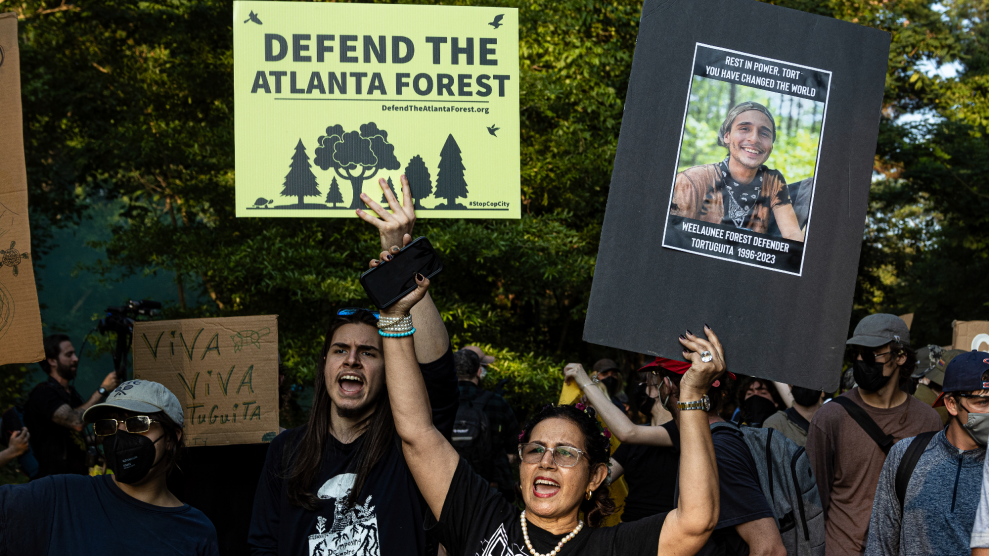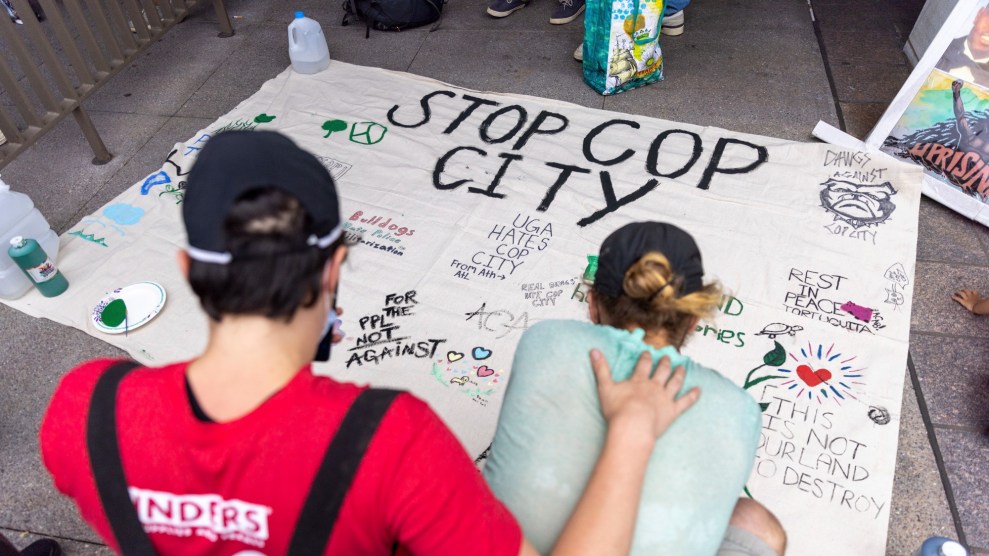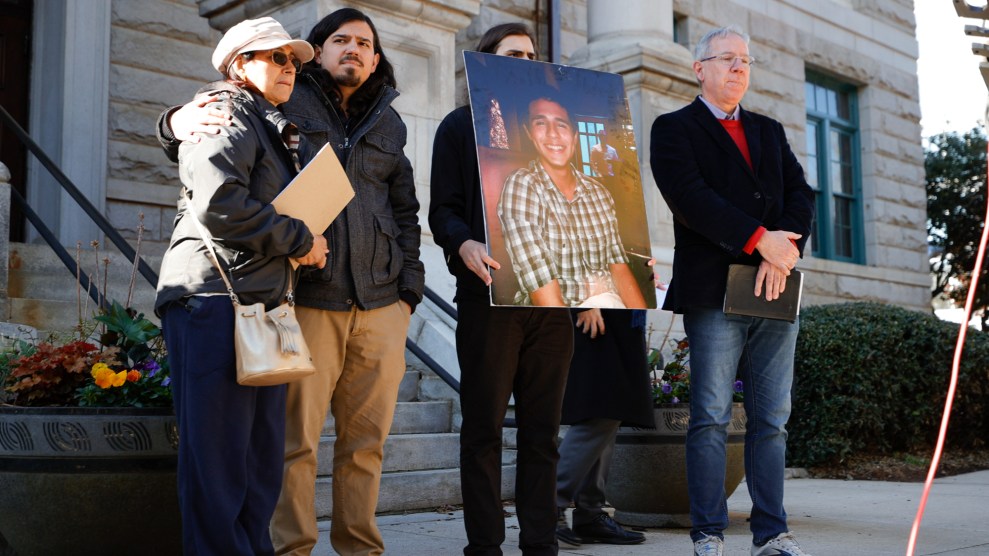
Collin Mayfield/AP
Last week, Republican state Attorney General Chris Carr released an indictment charging 61 “Stop Cop City” activists under Georgia’s Racketeer Influenced and Corruption (RICO) Act. The indictments followed a lengthy state investigation into demonstrations aiming to halt the construction of the Atlanta Public Safety Training Center, often dubbed “Cop City” by its detractors. Some of those charged are facing up to twenty years in prison. Protesters are being prosecuted for donating to bail funds, handing out fliers, and self-publishing magazines—a move civil rights advocates worry could set a dangerous prosecutorial precedent for other organizers nationwide.
“This is breathtakingly broad and unprecedented use of RICO state terrorism and money laundering laws against protesters,” said Aamra Ahmad, a senior staff attorney at the ACLU’s National Security Project, a group of legal experts who ensure people’s rights are protected under the government’s national security policies. “Georgia is wielding these sweeping laws to stigmatize and target those who disagree with the government. And we should be concerned about how this could be replicated across the country and with other individuals.”
On September 5, Georgia’s prosecutor’s office unveiled a 109-page indictment against over 60 people connected with the “Stop Cop City” movement—fulfilling Governor Brian Kemp’s promise to crack down on protests. Nearly two dozen of the defendants are also facing domestic terrorism charges in connection to demonstrations earlier this year. “This indictment is treating protesters and community activists as if they were an organized crime ring,” said Ahmad. “The right to protest is fundamental to our democracy if that dissent is patriotic. And we have a right to disagree and dissent with those in power and demand a better world.”
Ahmad worries that, even if these RICO charges against the organizers don’t stick, it could discourage others from exercising their First Amendment Rights as well. “We have a right to protest the expansion of policing in our cities and towns and these kinds of extreme charges could have a chilling effect nationwide,” she said.
Starting in 2021, protesters have banded together to stop the city from establishing Cop City—slated to be one of the largest police training facilities in the country—citing the potential negative environmental impact and further militarization of Georgia’s police force. However, despite hundreds of testimonies in opposition, the Atlanta City Council approved the project in June.
Since the movement’s inception, “Stop Cop City” organizers have been surveilled, assaulted, and charged by local and state authorities. As recently as last week, protesters have been detained on trespassing charges during non-violent demonstrations. In early June, three leaders of the Atlanta Solidarity Fund, an organization that provides bail funds for detained protesters, were charged with charity fraud and money laundering.
However, even with charges against “Stop Cop City” protesters piling up, demonstrators are still going strong. Last Thursday, five protesters were detained and eventually released for chaining themselves to equipment at the training facility’s construction site, while an ongoing campaign to allow Atlantans a vote on whether or not the APSTC is built. On Monday, Atlanta’s City Council accepted more than 116,000 signatures supporting a referendum on the training center but they ultimately refused to begin the verification process for such a referendum.
“There is a war happening against protesters. If we don’t stand up for our right to protest now, standing up in the future will be in vain,” said Ayeola Omolara Kaplan, one of the five arrested activists, in a statement. “Cop City is in the process of being built and this can only continue if we allow it.”














